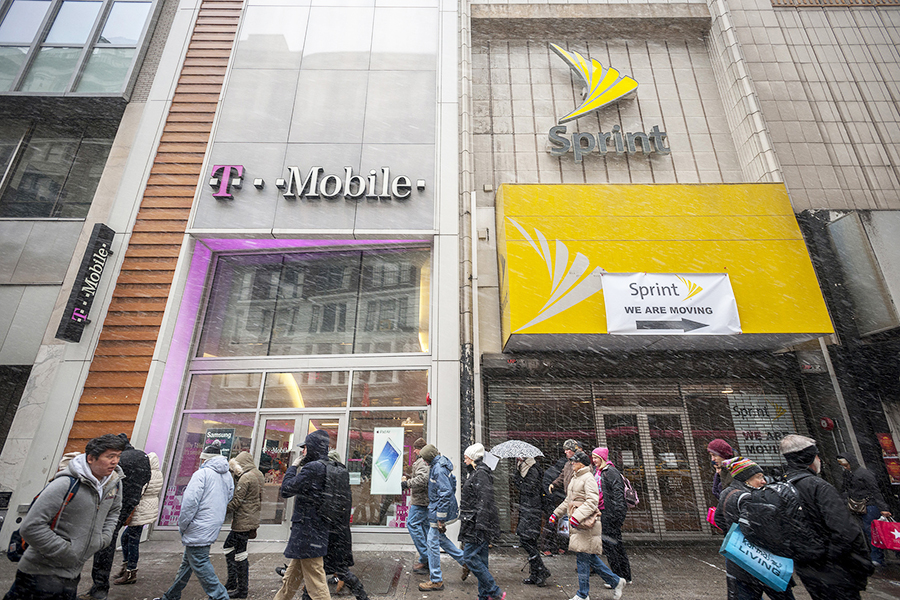Possible Monopoly or Smart Business Plan?
Sprint and T-Mobile will join to create a super-charged service provider, which is intended to increase coverage and provide new jobs.
PHOTO | TNS
Sprint and T-Mobile won a recent court case determining whether or not it would be allowed to combine the two and are now in the final stages of merging the two phone service providers.
After a month-long legal battle, Sprint and T-Mobile have been cleared to merge and create a combined service company in competition with AT&T and Verizon. The new wireless carrier, under the name T-Mobile, could have nearly 100 million customers, according to the New York Times.
This poses the question of what effect will this corporate supersizing have on the consumers. At the moment, there is no factual evidence that supports the claims being made that this deal will harm Sprint customers. T-Mobile’s customers will likely experience little, if any change, according to the New York Times.
However, rather than look solely at this deal between phone providers, a broader topic is brought into play with these court proceedings. The creation of these big businesses and monopolizing a product that nearly every consumer has is morally unjust. New York attorney general, Letitia James says that this merger would be “bad for the economy” and could potentially “stifle innovation,” according to the Cable News Network.
The US Department of Justice has approved the merger, and Sprint customers will soon be transferred over to T-Mobile phone plans, as early as April 1. At the moment, there is no plan to raise prices on phone plans. The new super-company is going to reportedly bring in new jobs and bring high-quality coverage to underserved areas, according to T-Mobile.
Although some believe the joining of these two companies could lead to a potential monopoly of wireless services, the likelihood of such is slim. Even with the added Sprint coverage, T-Mobile still only covers approximately 30 percent of phone plans, while AT&T covers 40 percent and Verizon 30 percent, according to the New York Times. It is a trio of major phone companies battling it out for supremacy. Sprint has been going bankrupt, and by being merged with T-Mobile, its assets if found bankrupt would be absorbed by the three major companies, new T-Mobile, AT&T and Verizon, equalizing the balance, according to the New York Times.
In Kansas, the location of Sprint headquarters, it is believed that the joining will expand coverage to those in rural towns or to those with poor wireless speeds. The creation of the new super company will create new jobs for Kansans, according to the Kansas Attorney General Derek Schmidt and The Washington Post. It is intended that the company be held to its projected standard for its “second headquarters” in Overland Park and expand the faster 5G coverage.
Ultimately, the joining of these two companies is decreasing the possible monopoly that could arise if other companies were to obtain larger amounts of Sprint’s assets. Until phone plans begin to rise higher than promised and one company attempts to take complete control, the merging of these two 5G companies doesn’t seem like such a bad idea.



